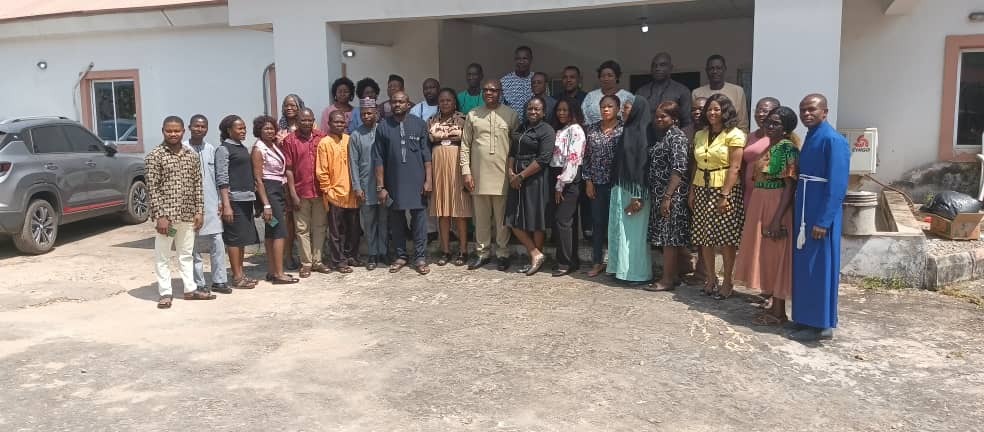Ike Nnachi, Abakaliki
Stakeholders in Ebonyi State have called for concerted efforts in the fight to end open defecation in the state.
They made the call during a two-day stakeholders consultative meeting on the review of of the State’s Water Resources Policy.
The meeting was held with the support of United States Agency for International Development (USAID) Nigeria State Accountability, Transparency and Effectiveness (State State) Activity in Abakaliki, capital of the state.
Speaking on the State of Water, Sanitation and Hygiene (WASH), General Manager of Ebonyi State Rural Water Supply and Sanitation Agency (EBRUWASA), Agwu Joseph, said the Agency has drilled 51 boreholes in 2024.
He noted that the state was able to achieve this after it paid its counterpart fund of N200m for the Federal Government’s Partnership for Expanded Water,Sanitation and Hygiene(P-WASH).
The GM said that under the partnership, more toilets facilities will be constructed in public places.
The State2State Citizen Engagement and Capacity Building Specialist, Habila Salem, urged the state government to invest more in the fight against open defecation.
He also advised the state government to carry out more citizens sensitisation on the need to stop open defecation.
He said: “State2State is aware of the situation in Ebonyi and that is why State2State is supporting the state to improve wash service delivery.
“Coincidentally, we are supporting a review of the state policy. That was the state’s wash policy to address the situation and that is fundamental.
“When we have a robust policy framework for the state, it will support effective service delivery. And we are looking at service delivery that is responsive to all category of citizens of the state.
“So currently we are doing that to ensure that the state has a robust policy and legal framework for WASH service delivery.
“The state will need to invest more in cutting down on open defecation, engage with citizens and all stakeholders in addressing this issue.
“The state will also need to sensitise citizens on the dangers of open defecation. There is need for behavioral change of the citizens regarding open defecation.
“So it requires a concerted effort of all. Government alone cannot achieve that. Even private sector participants need to come in. You know, they say for every problem, it may be an opportunity for another to benefit.
“So business people can also come in to provide services in terms of providing public toilets at public places and make some money out of it too. So it is an opportunity for business for the private sector too. And that will actually go a long way in reducing the problem.”
Mr Salem also said there is need to disabuse the minds of open defecation practitioners who believe that open defecatation supplies manures to crops.
He said: “That is the wrong notion because when you compare the advantage of providing money through human faeces, you understand, and the danger, the risks involved, you just talk about cholera outbreak in the state.
“I think the disadvantage outweighs the advantage. So we only need to correct that notion to change behavior of people. There are alternative ways of manuring our farms, not through open defecation. That is not a good idea for me,” he said.
State2State’s Gender Equality and Social Inclusion (GESI) Specialist, Ejiro Okotie, called for an all inclusive water policy and law for the state.
She highlighted the need for accessibility and availability of water to all including Persons with Disabilities (PWDs).
“The law and policy should not be one sided. It should be structured in such a way that it captures all groups.
“It should reflect social inclusion and take care of needs of PWDs. It should be a policy that benefits all citizens despite their locations,” she said.


